
by Victoria Silverwolf
Chalk and Cheese
I recently read two new science fiction novels by British authors that are otherwise as different as they can be. One takes place in the very near future. The other is set centuries from now. One never leaves England. The other ventures into interstellar space. One uses an experimental narrative style. The other is told in a traditional manner. One is New Wave, the other Old Wave. Let's take a look at both.
Bedlam Planet, by John Brunner

Cover art by Jeff Jones.
Before the story starts, unmanned probes discovered a habitable planet orbiting Sigma Draconis. A team of four explorers went to check it out. Everything seemed hunky-dory, so three big starships carried a bunch of colonists there. They named the planet Asgard.
One ship was to be used for raw materials. Another was to be kept intact, in case the colonists needed to get out quick. The third was supposed to carry our hero, one of the original four explorers, back to Earth.
Disaster struck when an error in navigation caused one of the ships to crash into Asgard's moon. Our protagonist, a born wanderer, is stuck on Asgard, a reluctant colonist who doesn't fit in with the others. While off on his own, he is stung by a local critter and spends several days hallucinating.
Meanwhile, a microorganism native to the planet gets into the bodies of the colonists, leading to vitamin C deficiency and thus scurvy. For various reasons, the only permanent solution to this medical problem is for folks to start eating local foodstuffs, not yet known to be completely safe. Half a dozen colonists are selected at random to test native foods.
When our hero returns, he finds the six people locked up, apparently insane and guilty of sabotaging the colony. The other colonists are in a very bad state, barely able to take care of their basic needs and unwilling to make even very simple repairs. Can one man whip them into shape, solve the vitamin C problem, figure out what happened to the six insane folks, and save the colony?
I should mention that the hero's hallucinations, as well as those of the six colonists who eat local foods, take the form of folklore from their individual cultures. A Greek woman, for example, imagines scenes from Greek mythology. A detailed description of these hallucinations is probably the most interesting and original part of the book.
The explanation for what's going on didn't fully convince me; it got a bit mystical for my taste. What is otherwise a problem-solving SF story that wouldn't be out of place in the pages of Analog flirts with things like racial memory. I'll give the author credit for having major characters of both sexes and multiple ethnicities.
Three stars.
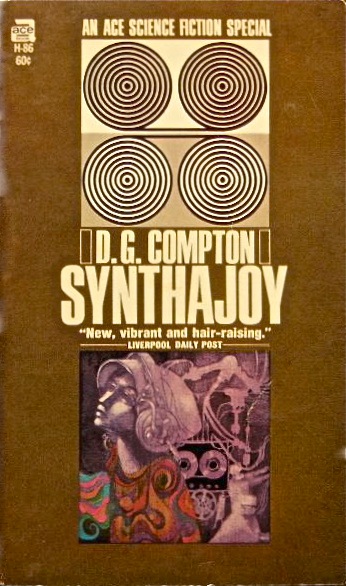
Cover art by Diane and Leo Dillon.
It's nearly impossible to provide you with a simple synopsis of this novel, because it's narrated in a nonlinear fashion. In addition to that, the narrator may be insane, spends most of the day in a sedated condition, and is subjected to a form of therapy/punishment that definitely messes up her mind.
The narrator is the wife of a obsessive scientist, now dead. With the help of a brilliant electronics engineer (later the wife's lover, and also dead), he came up with a way to record the sensations experienced by one person and to allow another to share them. Originally used as therapy, it becomes a form of entertainment as well.
We slowly learn that the narrator has been convicted of a crime, and that she is subjected to mental recordings designed to make her contrite. With multiple flashbacks, some going all the way to the narrator's childhood, we see how the device was invented, how it was used, and how it was corrupted. We also receive varying accounts of how the two men died.
Alternating with these memories, which may be distorted, the narrator also relates events happening to her in the present. Her relationship with the Nurse and the Doctor is a complex one, with hidden motives everywhere.
This is a difficult book. Besides jumping back and forth in time, often from one sentence to the next, the text frequently breaks off in the middle of a line. Events are not only narrated out of order, but also retold in a completely different way. It's impossible to discover the real truth.
Despite the effort required on the part of the reader, and the inherent ambiguity of the work, this is a fine novel. The author happens to be male, but he writes from the point of view of a woman in a completely convincing manner. If you're looking for light entertainment, seek elsewhere. If you want to discover that science fiction can be serious literature, you're in the right place.
Five stars.

by Mx. Kris Vyas-Myall
The Tripods (The White Mountains, The City of Gold and Lead, The Pool of Fire) by John Christopher

H. G. Wells’ War of the Worlds casts a long shadow over the science fictional world. Whether fans see it as using invasion literature as a satire on imperialism or just an atmospheric horror tale, know it from films, radio or magazines, it is one of the core works of SF.

But what if Wells’ Martians came not to exterminate but enslave?
Whilst not officially a sequel to War of the Worlds, it is hard not to read it as anything else. In this version, the Tripods came and conquered more than a century ago. After millions were killed in the war what remains of humanity lives in a feudal society under their tripod overlords. Once people reach the age of 13, a metal “cap” is put into their head which ensures their compliance with the alien commands.
Will Parker, from a Southern English village, meets a vagrant who tells him of the location of free humans. Together with his cousin Henry they journey to The White Mountains, to both learn more of The Tripods, and to fight against them.
At their heart these are juvenile adventure stories, a cross between Ian Serallier’s Silver Sword and Andre Norton’s SF tales. However, juvenile should not be taken to mean shallow or hollow. These are dark tales of children trying to survive in an oppressive society.
The highlight for me is the second book, where we get to see life in a Tripod city and Will is treated as a pet by one of the aliens. It is insightful, vivid and very disturbing.
These do have one flaw and that is found in the final book. Christopher wants to tie up the trilogy in these short books and the ending feels incredibly abrupt and light, given what we see in the others. However, there is still much to enjoy here and worth checking out.
I actually feel the limitations of having to write for a younger audience benefit Christopher. He is forced to remove his tendency for gratuitous shock scenes for the sake of it, nor did I notice any of his usual prejudices against the Celtic nations of the British Isles. If he sticks within this field, I will willingly pick up more of his books.
Four stars

by Blue Cathey-Thiele
Ace Double H-56
Pity About Earth, by Ernest Hill
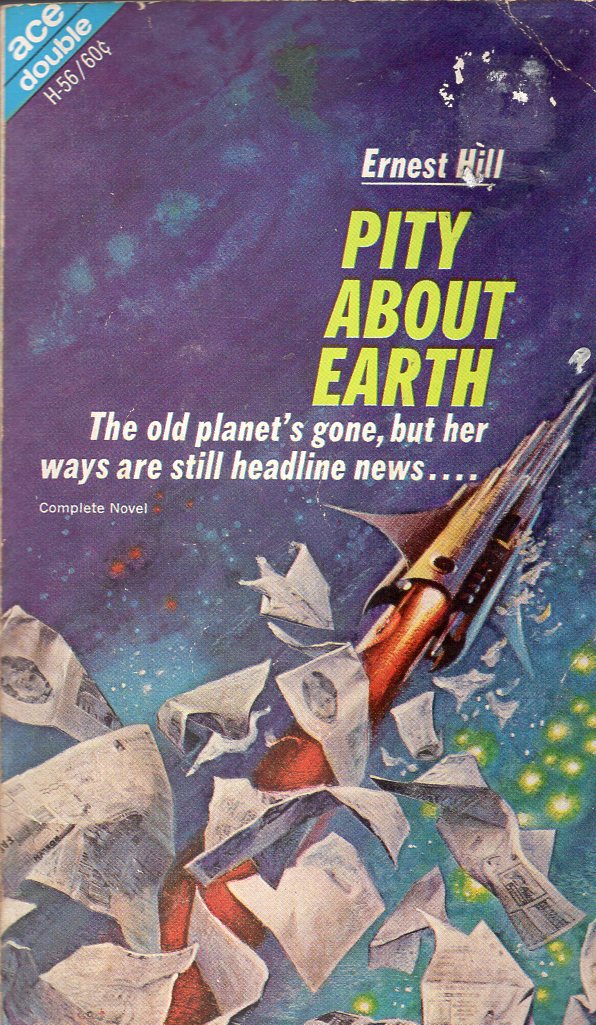
Pity About Earth introduces us to Shale, a callous, ambitious, often downright cruel man. He and Phrix, his alien assistant, work for the god-like Publisher, in advertising. His ship is automated, as is the rest of the universe. A mistress of his plots with a competitor, and Shale is forced to escape into a labyrinth. There he encounters cages inhabited by humans who have been conditioned to prove concepts in torturous and deadly ways. Shale feels no sympathy, up until a human-ape hybrid named Marylin catches his attention. He is strangely compelled by her. She helps him to escape the maze, and later, the planet.
Despite being a Groil, Phrix has been promoted to Shale's old position. In one of many instances where Marylin tries to redirect Shale from violence, she protects Phrix by setting Shale to go to Asgard, fabled home of the Publisher.
Upon reaching Asgard, they find the long dead remains of the Publisher. In his place is Limsola, a woman who has been gaining the secrets of Asgard executives just before their deaths. Shale is distracted by her allure, breaking Marylin's heart as he was the first being to show her a shred of care. Limsola encourages Marylin to Publish, to change the rules. Marylin confers with Phrix about how change could happen, and she takes up post as the new Publisher. On his homeworld, Phrix follows her lead, and together they begin to breathe life back into a world that had become frozen.
The world of the Publisher is automated to the point of inaction. Life is casually thrown aside even while there are means to prevent suffering. Advertising is a key function yet items only exist to *be* advertised. Phrix tasks himself with upending an entire universe. It is not a matter of ethics to him, only what is and what could be. Marylin has only abstract knowledge, no personal experiences, and yet she has more compassion and care than any other character.
Shale is hardly unique in his views, unwilling or unable to look beyond himself and care for others prior to meeting Marylin, and even after he begins to have some sense of shared "humanity" it is brief and confuses him. There is a special horror in his blasé approach to the labyrinth of experiments, food made of humans, and sexual violence. He doles out death and the dead are simply out of luck. He is a deeply unlikable protagonist; Marylin and Phrix provide far more engaging points of view.
I can't say I enjoyed it, but it left me with thoughts to chew on.
3 stars
Space Chantey, by R.A. Lafferty
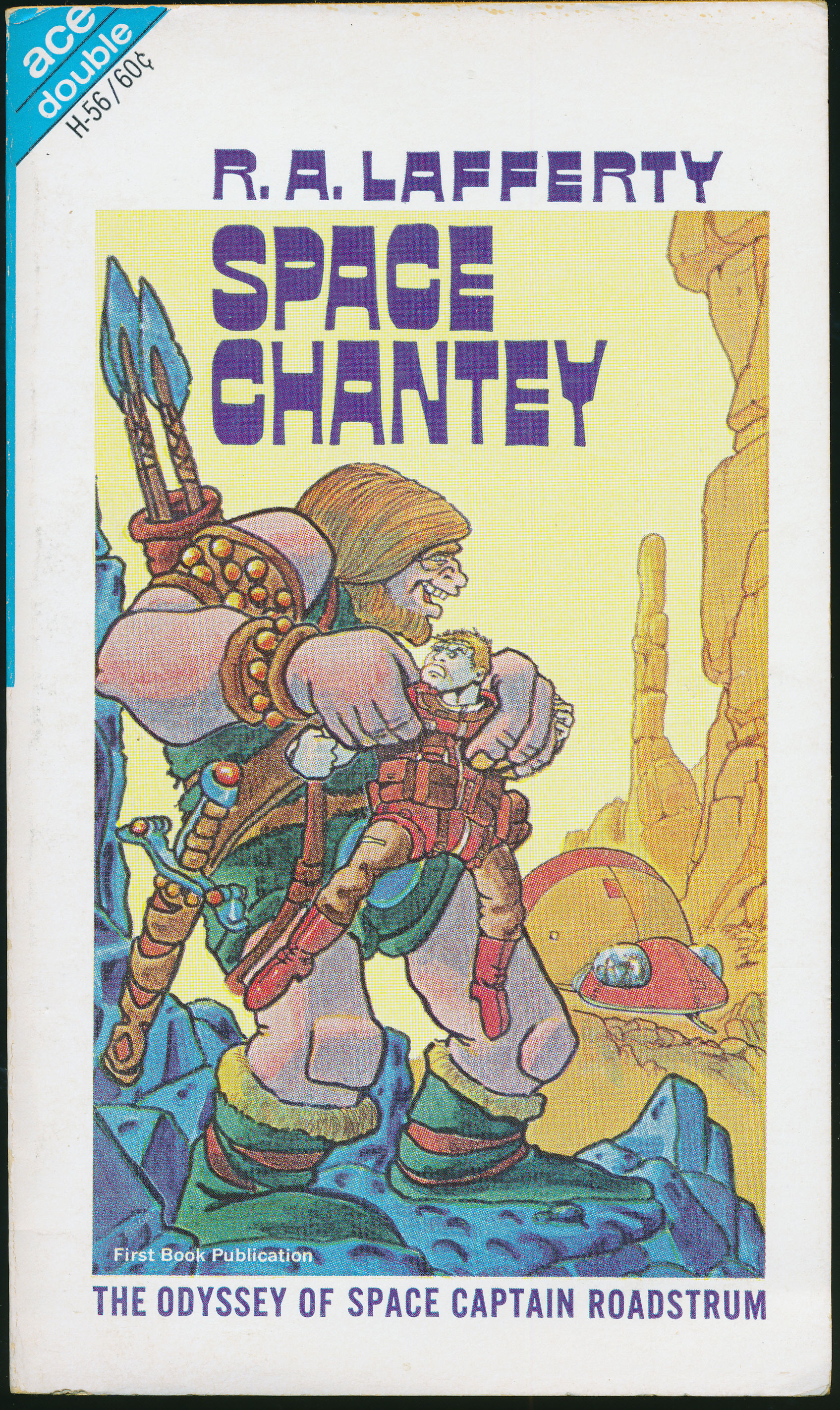
Captain Roadstrum plays the part of Odysseus in a loose adaptation of The Odyssey. Along with Captain Pucket, he and the crew of hornet-men visit planets that serve as analogs to the islands on the way home from Troy. Roadstrum is not some wise general, he survives via luck, sheer force of will, and the rare moment of inspiration. Margaret the houri and Deep John the "original hobo", myths in their own right, join the crew.
Roadstrum finds Valhalla, where his crew feast and fight and die, all to rise up ready to fight again the next morning. Upon leaving, the crew have their tongues cut out and grow themselves replacement organs- Roadstrum opts for a forked tongue, which grants him clever speech. They speed through twenty years while being sucked into a black hole, escaping via a recently installed button that reverses time.
Helios' cows are replaced by an asteroid belt orbiting a sun, though that doesn't stop the crew from capturing and *eating* one of these asteroids like a prize calf.
Roadstrum takes over for Atlas, not carrying the physical weight of the world but perceiving existence in its entirety, as anything he drops his attention from ceases to exist.
The crew complains about the size and quality of the hell planet they've been sentenced to for their crime against Aeaea, a version of the witch Circe, before breaking out.
Roadstrum is in no great hurry to get home, and we don't even get the name of his wife or son (Penny and Tele-Max) until the last 15 pages.
There is a degree of self-awareness to both the story and Roadstrum himself, moments when he recognizes that he is acting out a story that has happened before, or even actions he seems to remember. He makes a determined break from repeating actions at the close of the book, choosing not to settle peacefully with his wife and son as the former version of Odysseus did, but to fly off toward more adventure.
Although Space Chantey, like Pity, has characters eating other people, casual killing, and brutality, it's in the format of a tall-tale and with barely half the gritty detail as the first book of this Ace Double. Even the characters who are dying often take it as a bit of a joke. Indeed, this book reads more as a folk story with space-travel trappings than science fiction. Characters die and return with little or no explanation, survive impossibilities and contradict themselves and the narration. It is larger than life and at times quite silly. It also has plenty of dubious poetry in the form of verse interludes.
This would have been better suited as a series of stories around a campfire than a sci-fi novel.
2.5 stars

by Gideon Marcus
Sideslip!, by Ted White and Dave Van Arnam
If you've been following Dave Van Arnam's First Draft 'zine, you're probably rooting for this fan-turned-filthy-pro. I didn't get a chance to read his Star Gladiator, and this newest book is co-written. Still, Ted White's name is magic to me, and who could resist this lurid cover. Therefore, it was with no hesitation that I plunked down my four bits plus a dime to read Sideslip!
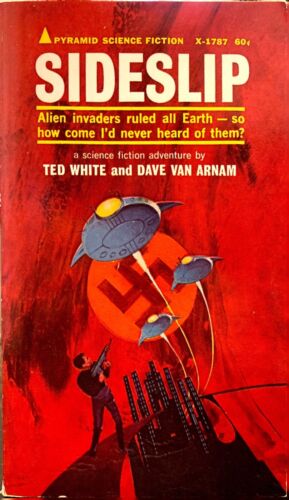
I was even more excited to see that the book starred Ronnie Archer, outsized private eye, who starred in the excellent short story, Wednesday, Noon. Turns out he's a false cognate, however. Per a letter Ted sent me:
Same name, different characters. Ron Archer was my penname as a cartoonist in the early '50s, and got applied to subsequent characters, usually private detectives. Ron was the protagonist in my never-written mystery novel, "The Stainless Steal."
Ah well. The rest of the book was similarly a disappointment. In brief, Ron Archer finds himself zapped into an alternate New York in a set-up quite close to that of White's Jewels of Elsewhen. But in this New York, alien invaders conquered the Earth in 1938, turning our world into a colonial source for raw materials. The "Angels", who look like tall, luminous humans, are protected by force fields and human collaborators known as Yellow-Jackets. This does not keep resistance groups from forming, which in the Untied States are represented by The Technocrats (led by Hugo Gernsback and employing Albert Einstein–these are the folks who warped Archer to this alternate world), the Communists, and the Nazis (led by none other than Hitler, himself).
The first half of the novel details Archer getting captured by and escaping from each of the various groups, ultimately ending up in the hands of the Angels. Well, one particular Angel. The one female Angel, who of course immediately falls in love with Archer. At this point, the story practically grinds to a halt as Archer is taken off-world to meet the Angels and argue for Earth's sovereignty. There are lots of pop-eyed descriptions of advanced technologies that feel better suited to SF from the 20s or 30s. Archer and Sharna, his Angel lover, have a fraught relationship written with the subtlety and skill of a teenager writing his first fanfiction. The end is a brief, action-filled segment. In between, there's a lot more sex and nudity than I've seen in an American SF novel. I found it a bit embarrassing.
In short, we have the bones of a Ted White novel, but none of the feel. Missing is the deft, sensual touch that White lends his pieces, as well as any semblance of good pacing. This actually makes perfect sense–in another letter, White explained that the story was largely executed by Van Arnam:
This was a book which started in a writer's group. I wrote an opening hook and passed it out to the others. Dave Van Arnam picked up on it and suggested we collaborate on a book. Which we did. I was not happy with Dave's writing early on, and heavily rewrote his first drafts, but as I fed these back to him he picked up on what was needed, and the last quarter of the book is mostly his. Pyramid liked the book well enough to ask us to write their Lost in Space book…
The real problem with the book, beyond the technical issues, is that Archer doesn't do anything. At every turn, he's simply along for the ride, noting his surroundings, occasionally running. Archer, himself, notes as much at the end of the book. I suppose that speaks to some authorial awareness, though it doesn't fix the problem.
Still, the book is readable, in a hackish sort of way, and the concepts are fine, if as hamfisted as the cover. Based on quality, I should give this thing two stars, but I did make it through Sideslip!, and I wanted to know what happened, so I'll give it three.

![[April 16, 1968] Tripods and Others (April 1968 Galactoscope)](https://galacticjourney.org/wp-content/uploads/2023/04/680416covers-672x372.jpg)

![[April 14, 1968] In Unquiet Times: The Frankfurt Arson Attacks, the Shooting of Rudi Dutschke and <i>Electronic Labyrinth THX-1138 4EB</i>](https://galacticjourney.org/wp-content/uploads/2023/04/THX_1138_01-672x372.jpg)


















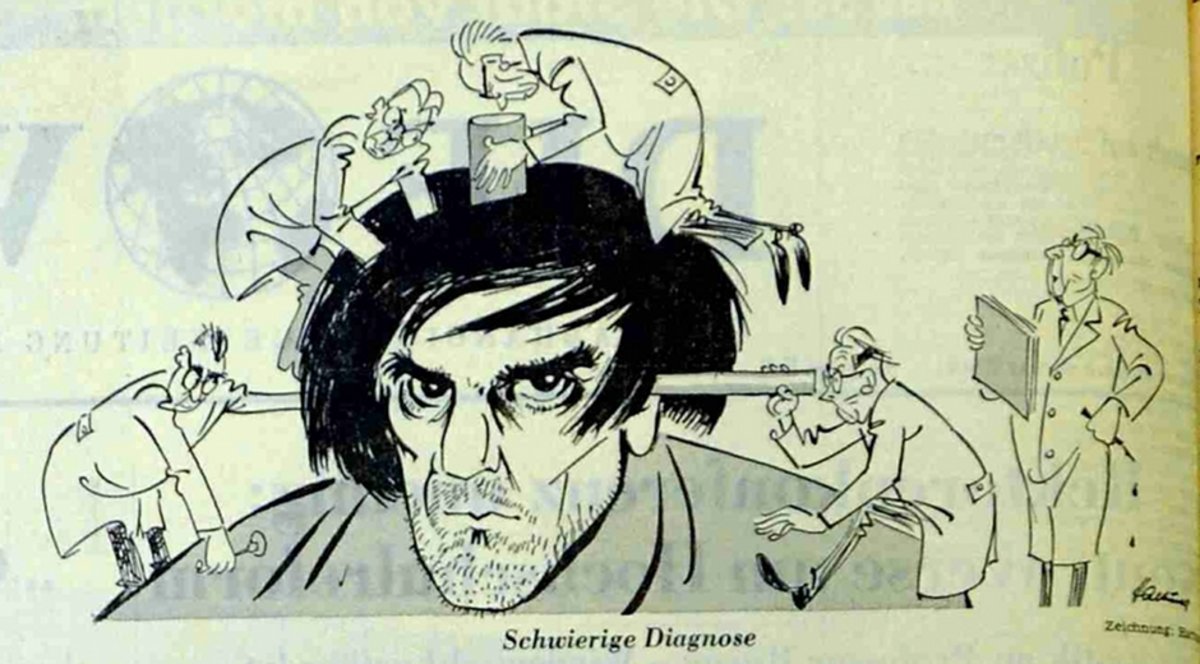






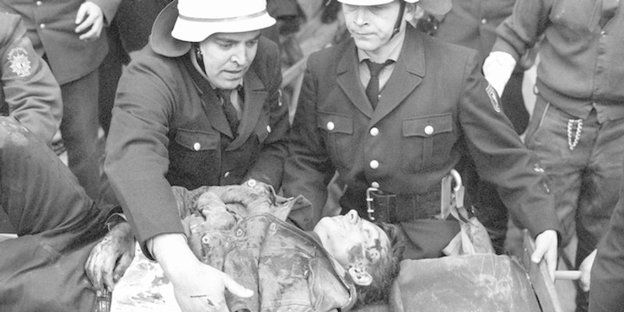













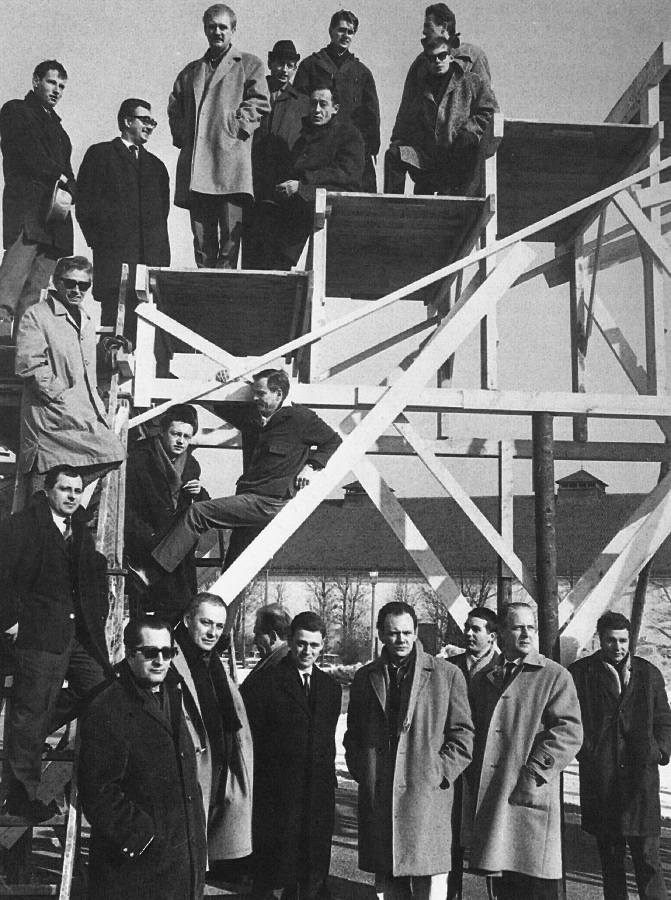


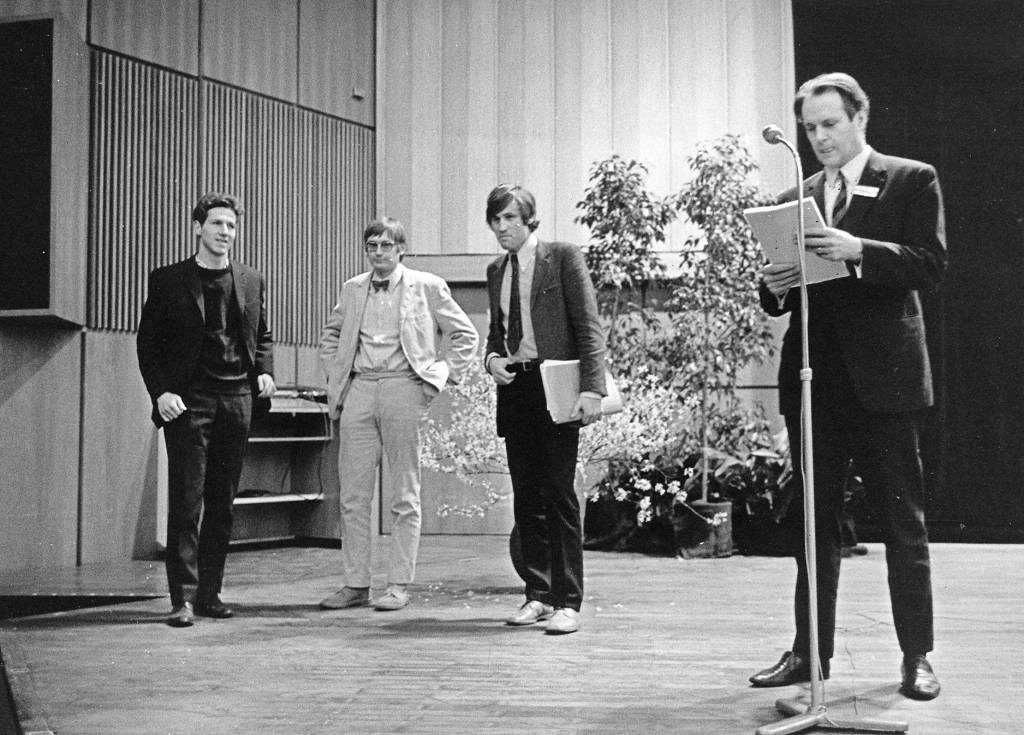
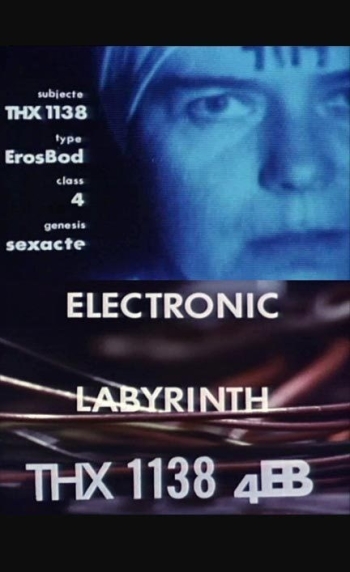

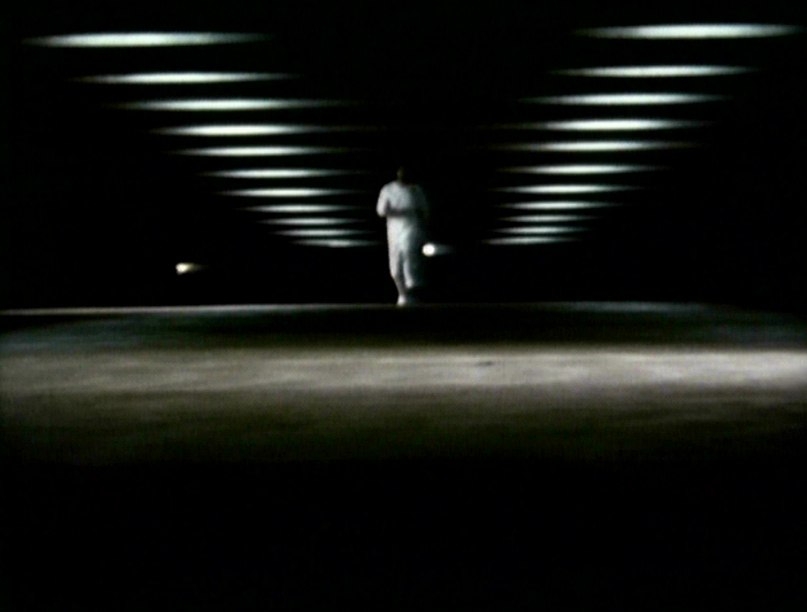


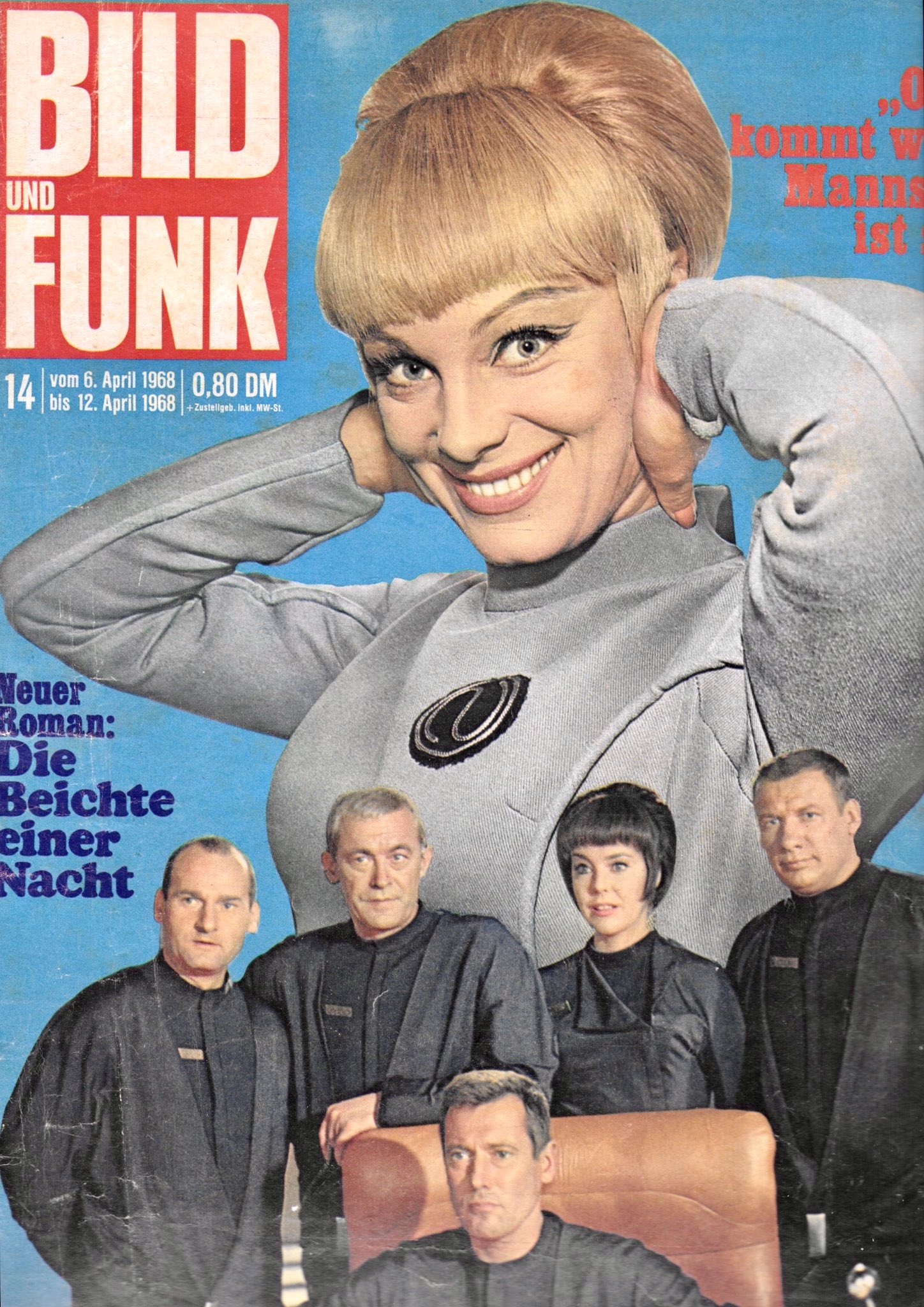
![[April 12, 1968] Darkness (May 1968 <i>Fantastic</i>)](https://galacticjourney.org/wp-content/uploads/2023/04/SMALLCOVER-672x372.jpg)

















 This tale appeared in the December 1956 issue of the girlie magazine Caper, attributed to Spencer Strong (Ackerman again) and Morgan Ives (Marion Zimmer Bradley.)
This tale appeared in the December 1956 issue of the girlie magazine Caper, attributed to Spencer Strong (Ackerman again) and Morgan Ives (Marion Zimmer Bradley.)
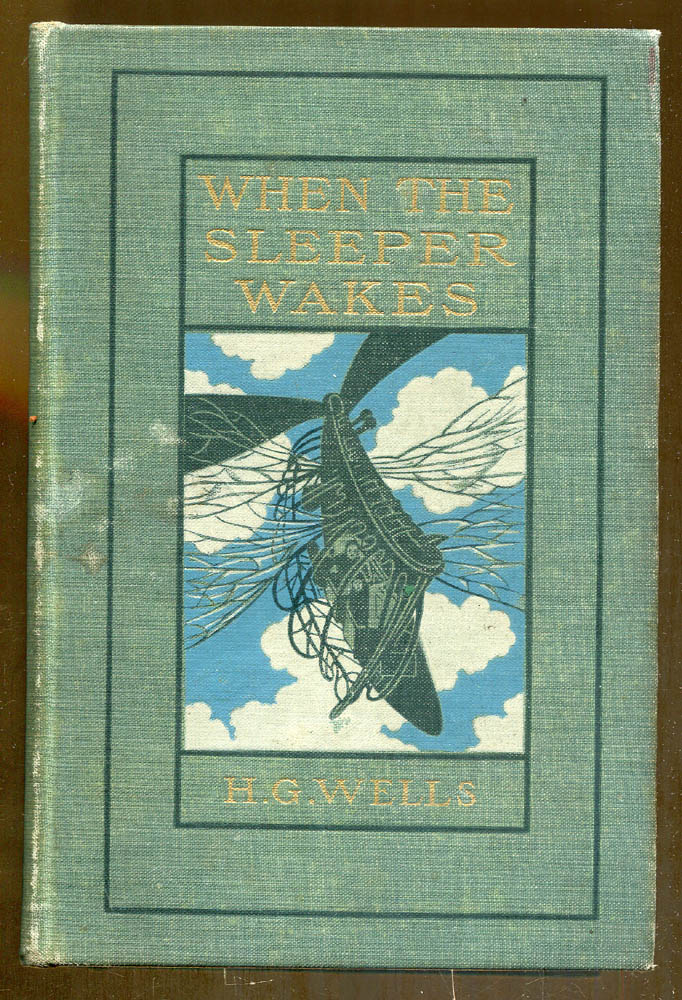





![[April 10, 1968] Things Fall Apart (April 1968 <i>Amazing</i>)](https://galacticjourney.org/wp-content/uploads/2023/04/amz-0468-cover-447x372.png)








![[April 4, 1968] Time and time again (<i>Star Trek</i>: "Assignment: Earth")](https://galacticjourney.org/wp-content/uploads/2023/04/680404title1-672x372.jpg)














![[March 31st, 1968] Boredom From The Deep (<i>Doctor Who</i>: Fury From The Deep [Part One])](https://galacticjourney.org/wp-content/uploads/2023/03/680331aaaaaaaaa-672x372.jpg)


![[March 28, 1968] Design for effect (April 1968 <i>Analog</i>)](https://galacticjourney.org/wp-content/uploads/2023/03/680328cover-672x372.jpg)
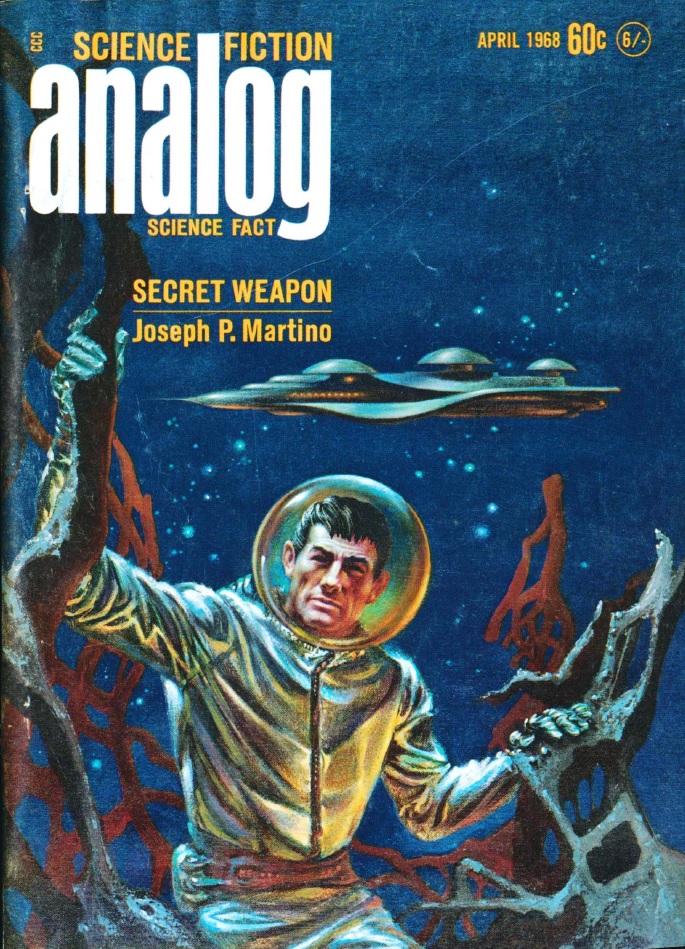
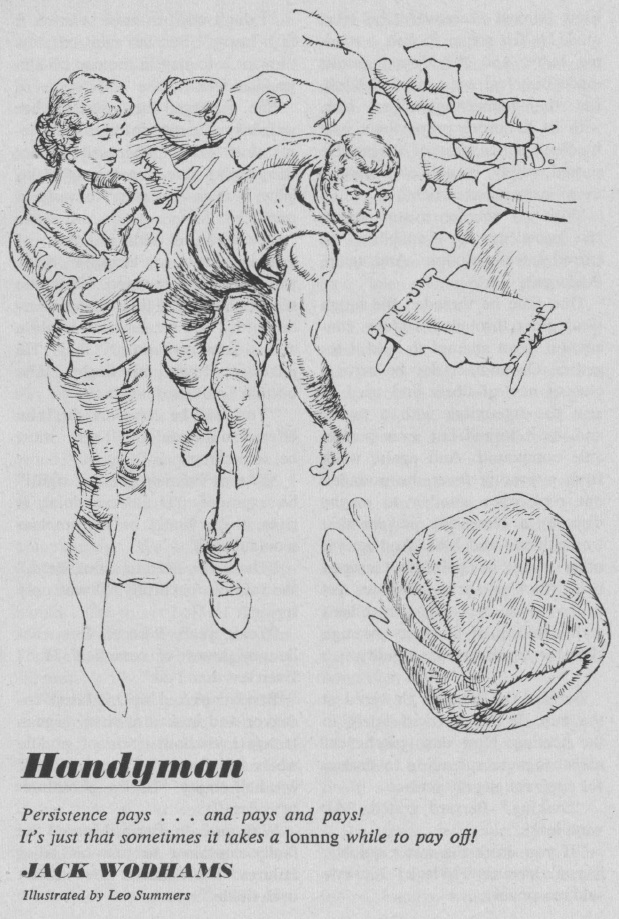

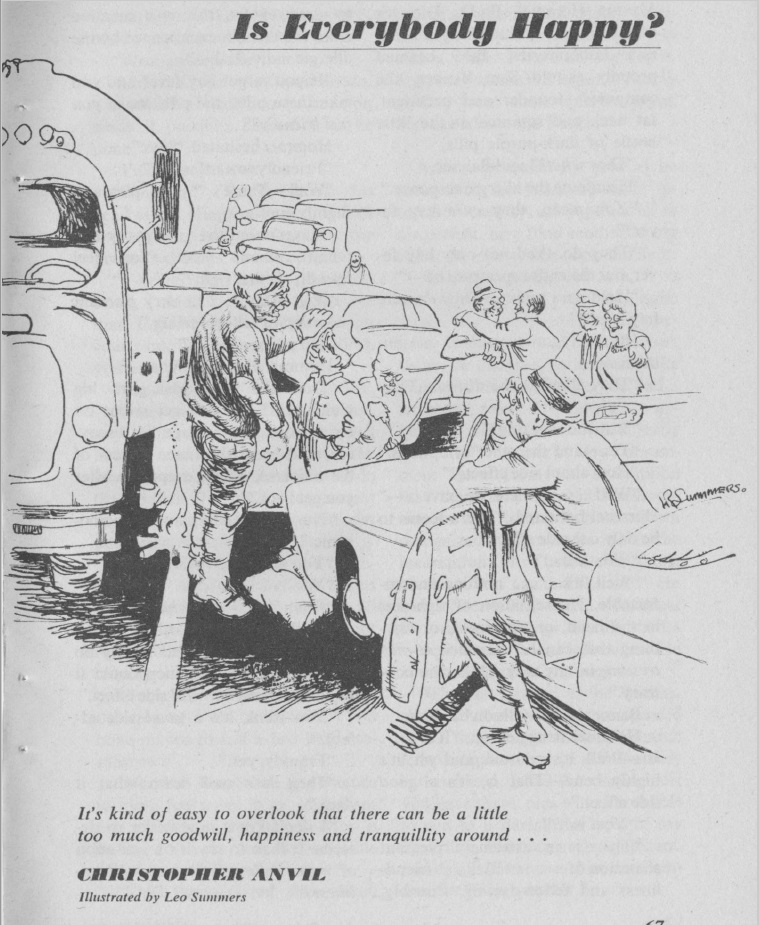

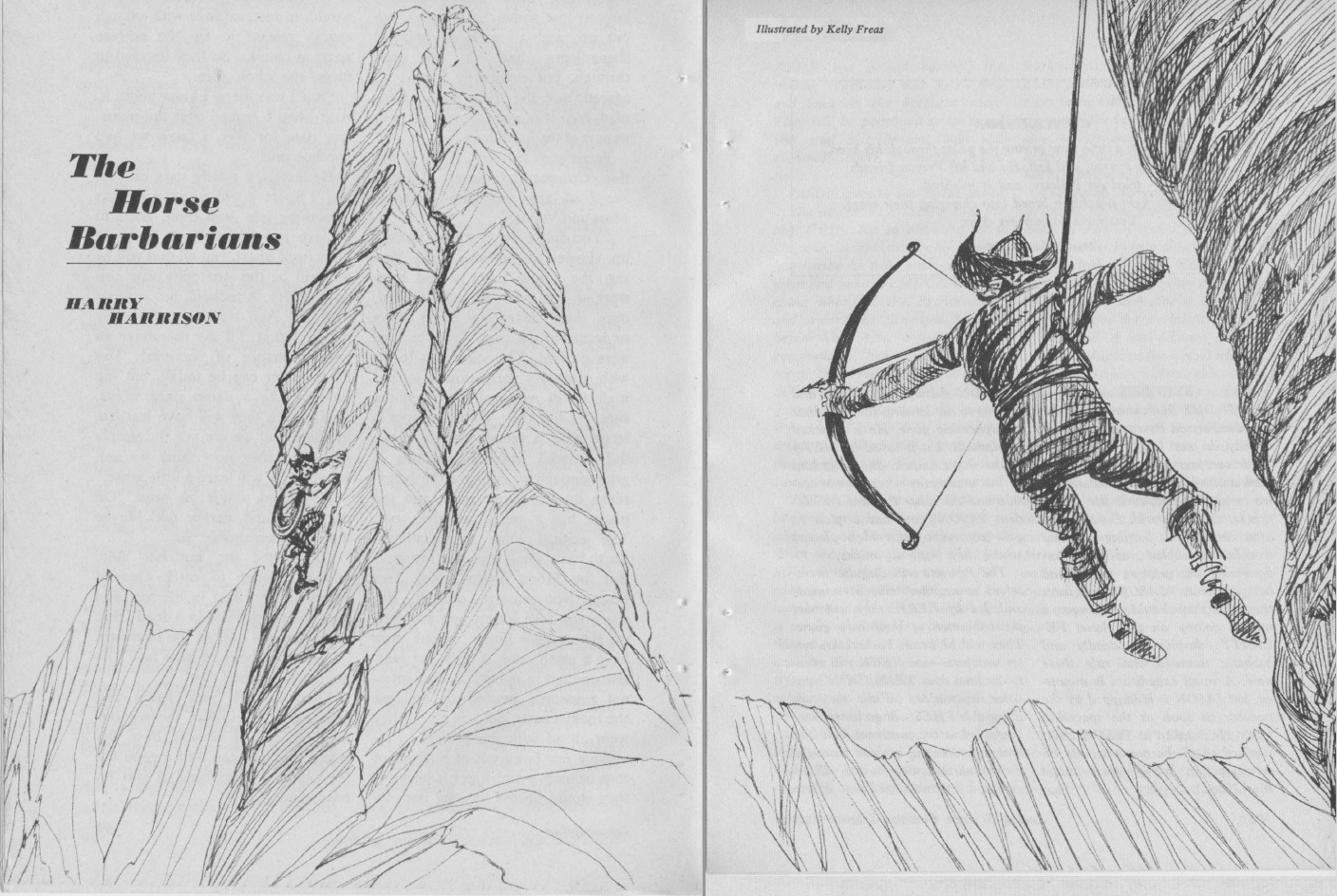
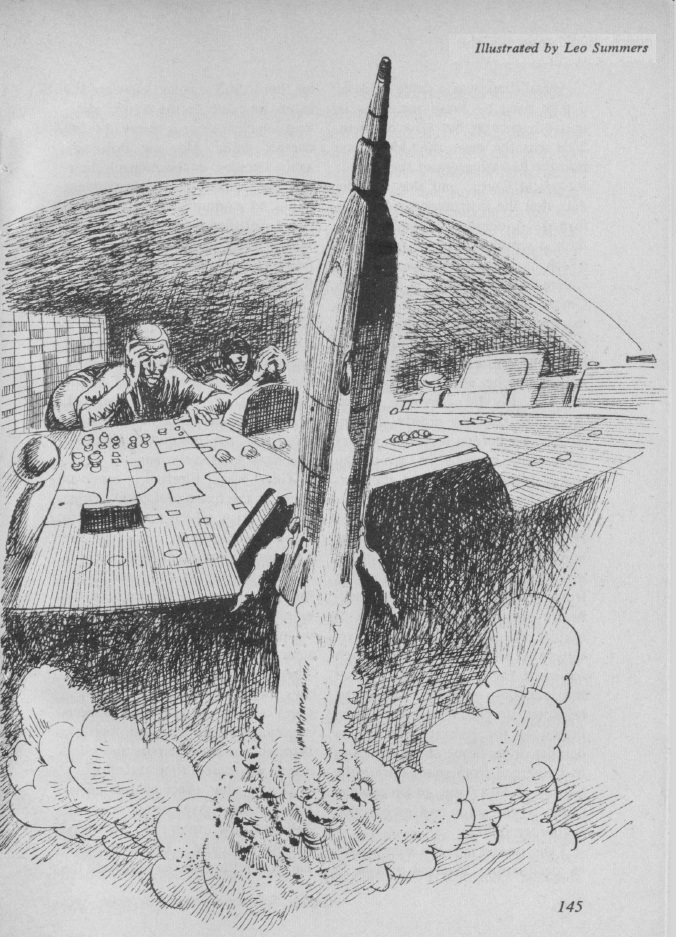

![[March 22, 1968] (Two Things Only the People Anxiously Desire, <i>Star Trek</i>: "Bread and Circuses")](https://galacticjourney.org/wp-content/uploads/2023/03/680322title1-672x372.jpg)



![[March 20, 1968] Missed opportunities (April 1968 <i>Fantasy and Science Fiction</i>)](https://galacticjourney.org/wp-content/uploads/2023/03/680320cover-666x372.jpg)


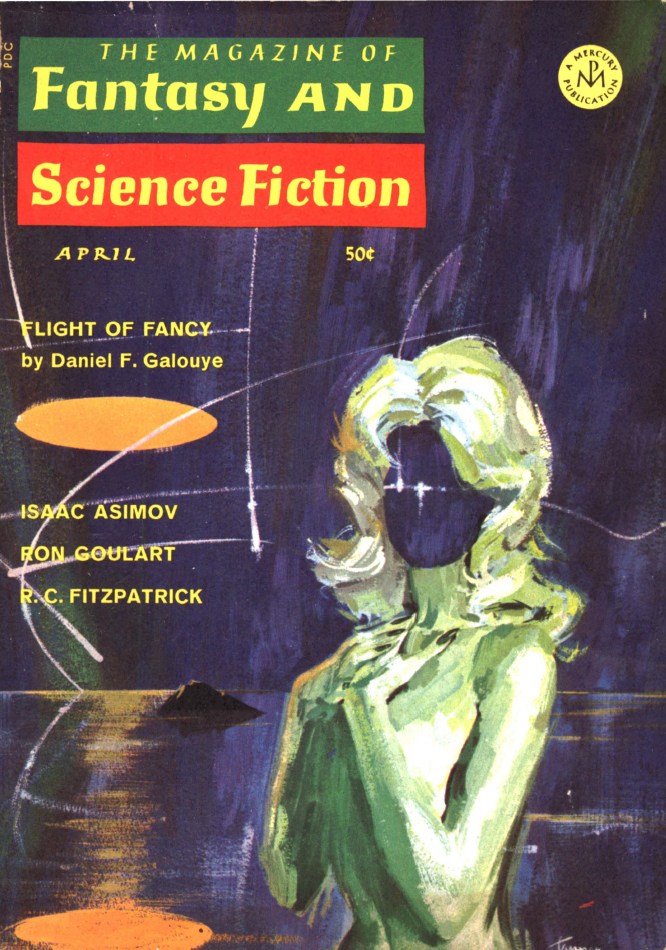



![[March 18, 1968] What Defines Humanity? (<i>Do Androids Dream of Electric Sheep?</i>)](https://galacticjourney.org/wp-content/uploads/2023/03/680318cover-scale-2_00x-506x372.jpg)




